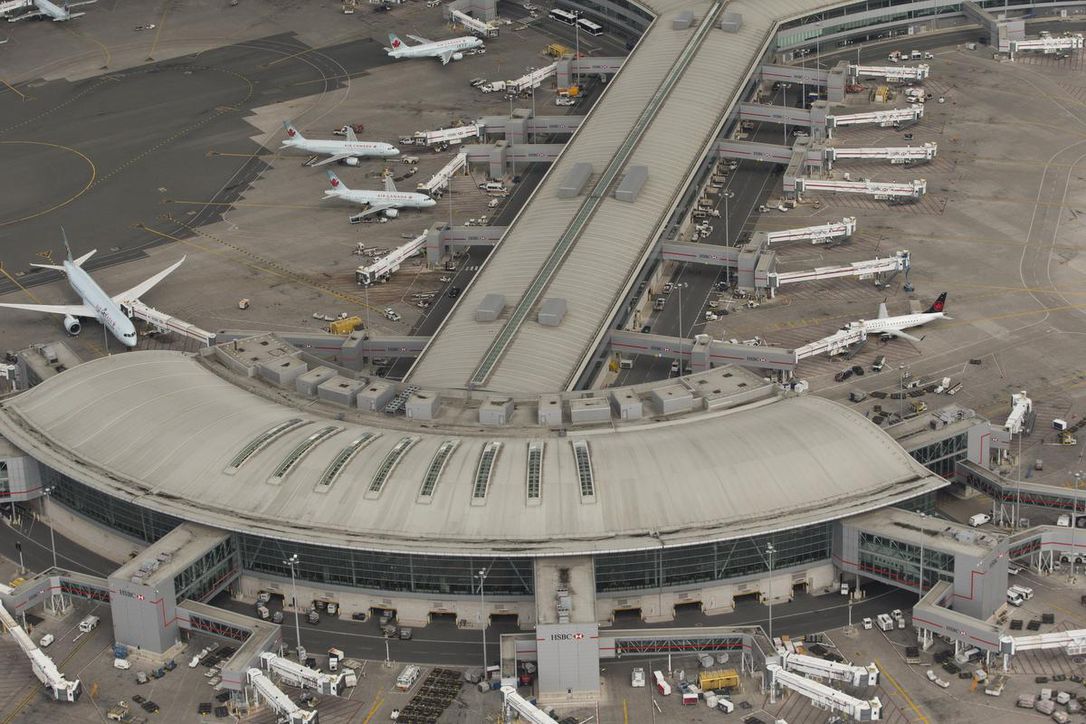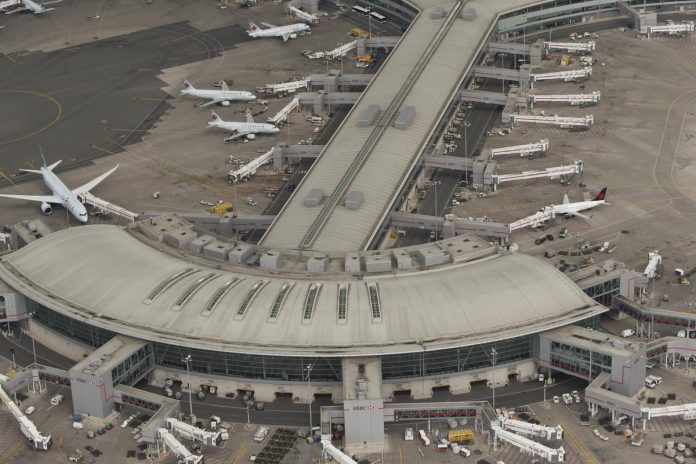[ad_1]
By Giuseppe ValianteThe Canadian Press
Thu., June 21, 2018
MONTREAL—A new study suggests federal and provincial governments can help ease some of the frustrations of travellers and grow the country’s air transport sector by reducing taxes and fees imposed on the industry.
Alexandre Moreau of the right-leaning Montreal Economic Institute says Canada’s massive geography and low population density help keep airline prices high, but even a small reduction in taxes and fees could make a big difference for travellers.

In his study, Moreau writes that comparatively high airport rents and security charges, coupled with provincial taxes, are restricting the potential for growth in the country’s air transport sector.
Canada is ranked 31st out of 32 countries in the Organisation for Economic Co-operation and Development (OECD) for the competitiveness of airport fees and taxes.
Moreau says Transport Canada collected $349 million in the 2016-17 fiscal year in airport rents and over the past five years, the federal government collected $404 million more in security fees than it spent on security-related expenses during the same period.
Moreau says in an interview that research indicates consumers are sensitive to modest price decreases, especially for tourism-related travel, adding that a 1-per -cent decrease in the price of a ticket corresponded with a 1.3 per cent to 2-per-cent increase in demand.
Read more:
WestJet’s low-cost carrier Swoop to take flight as battle for price-sensitive passengers heats up
How much should an airline pay for bumping a passenger? Now you can have your say
Toronto, Montreal airports have slowest free Wi-Fi in North America
“If we reduced the burden of taxes and fees that weighs down the air transport sector, the resulting increase in economic activity and tax revenue would likely compensate for at least a portion of the lost government revenue,” Moreau said.
Every year, federal and provincial governments collect more than $1.5 billion from airlines and airports.
By reducing taxes and fees, Moreau said airlines could lower prices, which would spark increased demand for flights and more revenues for airlines.
A higher demand for flights makes it easier and potentially more profitable for smaller and lower-cost airlines to enter the market, he said.
Airline ticket prices are felt acutely in Quebec, with many people living outside big cities stuck with airline monopolies and high prices for domestic flights.
In order to encourage domestic tourism, the Quebec government recently announced $173 million over five years to renovate regional airports, help low-cost and smaller airlines become more competitive and to directly subsidize flights for Quebecers living outside big cities.
Moreau said, however, the Quebec policy could end up increasing fares over the long term.
“With subsidies for airplane tickets, it’s possible the flights stay the same price or even increase because the companies know consumers will have high purchasing power,” he said.
TOP STORIES, DELIVERED TO YOUR INBOX.
[ad_2]








